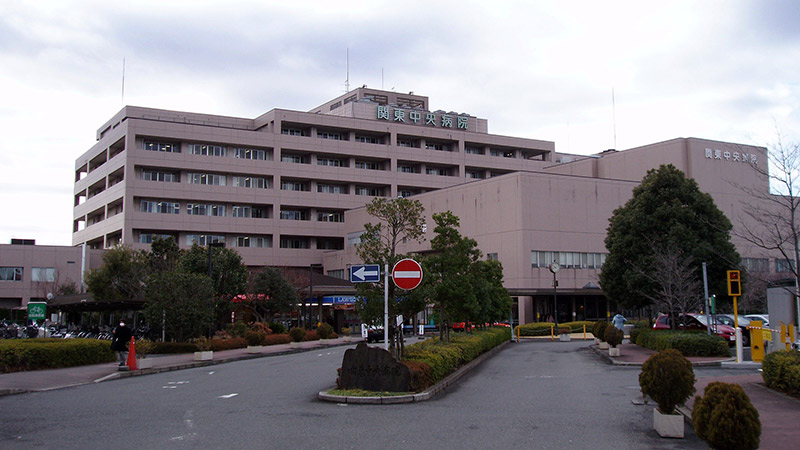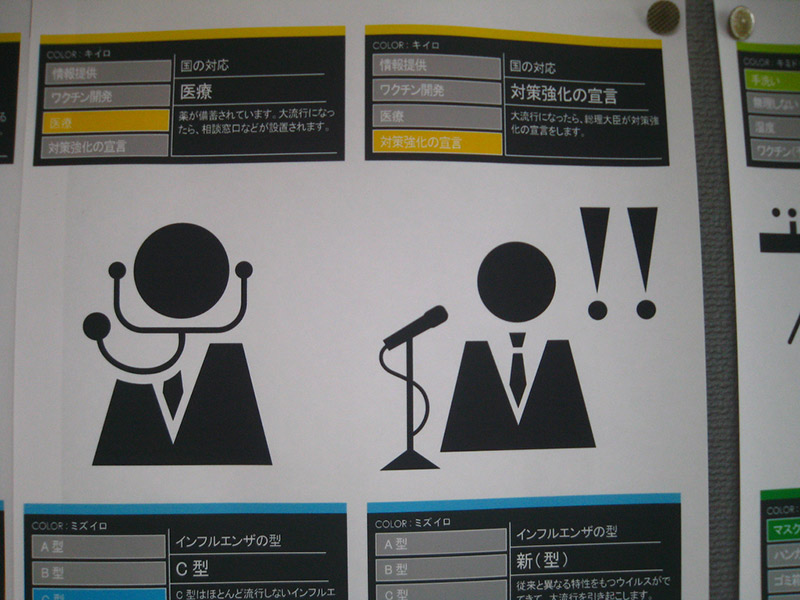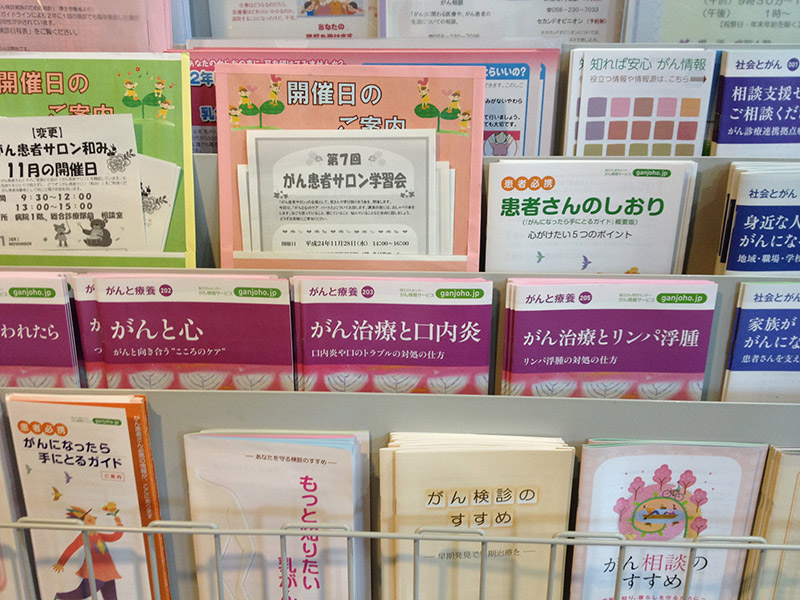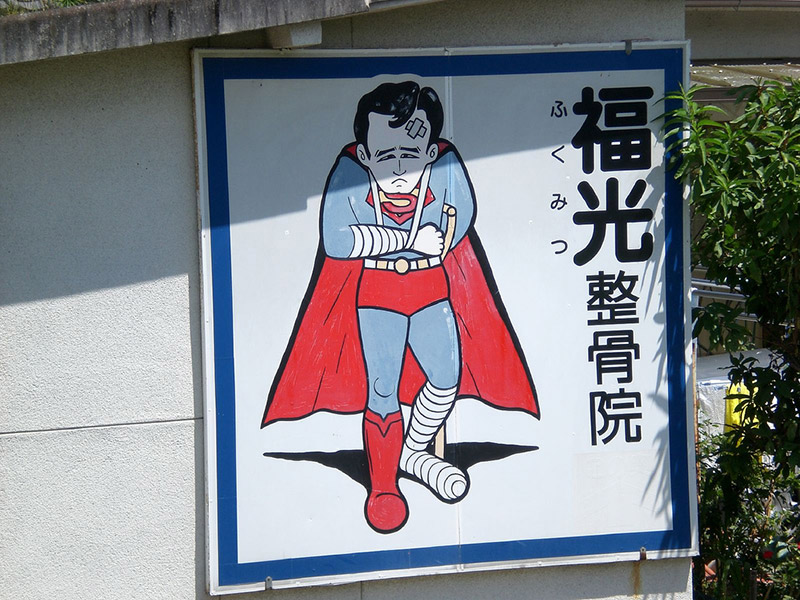Editor's Note: We have a new article about Japan's healthcare system written by an American author, Emily. Check out Japan's National Healthcare Guide (From An American Perspective) especially if you are looking for insights from the U.S. perspective. Even if not, Emily's article also useful includes tips that generally apply to anyone who's trying to navigate the Japan's healthcare system as a foreign resident, so be sure to read both articles!
While I was living in Japan, the scariest thing for me was the thought of getting sick. Having to deal with medical issues in a language I didn't fully understand and in a system I wasn't familiar with sent chills through me. I tried to live healthily and for two years and successfully avoided the hospital. But eventually my fears became reality, first with a bout of norovirus and then with a bus accident. Though a harrowing experience, it left me with a wealth of information on the Japanese medical system. Hopefully, by sharing my experience of the Japanese medical system as well as those of other people I know, it will help you understand and overcome a very difficult situation.
Welcome to the Japanese Insurance System(s)

Luckily, all Japanese citizens, permanent residents, and non-Japanese people living in Japan with more than a three months-long visa are required to be enrolled in either National Health Insurance or Employees' Health Insurance. Between these two plans, everyone living or working in Japan has access to healthcare with insurance that covers 70% of the bill and a cap on how much you have to pay on the other 30%.
If you move to Japan and are required to enroll in a health insurance plan, you must do so within two weeks. Signing up for National Health Insurance (Kokumin-Kenkō-Hoken 国民健康保険, ) is a case of visiting your local ward or city office. There you will be given your Health Insurance card. Once you get that card, don't let it go. If you don't have it with you when you go to a hospital, you'll have to pay 100% of the cost upfront. You can claim it back later, but that will take some time.
Employees Health Insurance (Kenkō-Hoken 健康保険) is all taken care of by your employer. The cost is shared between you and your employer. For many foreigners working in Japan, this is the insurance system you will be using. I didn't have to do anything to sign up for it as it was all set up by my employer. However, there are some exceptions, such as people employed by companies like Interac. This English Teacher supply company keeps its employees' logged working hours (29.5 hours a week) just below the level they would need to get Employees' Health Insurance (30 hours a week). In reality most work longer, up to 40 hours a week. These employees are responsible for joining the National Health Insurance plan by themselves and Interac makes no contribution. This is one of the ways private ALT companies cut costs, and it is important to be aware of this if you are thinking about teaching in Japan.
Whether you are covered under either plan, the benefits are the same. 70% of your health care costs are taken care of as soon as they arise. All you have to do is hand over your insurance card in a hospital or clinic. There are a range of options to cover the missing 30%. There is private health insurance, as well as insurance schemes run by employers directly. When I was in Japan I was covered by the JET insurance plan which took care of 30% of any medical costs.
Around the world, Japan's healthcare system is admired for providing good service for a low price. The Japanese spend half of what Americans do on health care and have longer life expectancy. Still, the idea of it being provided for a price at all was a bit confusing to me. When I had to go to the hospital because of norovirus, I had to pay for the 30% of my treatment that wasn't covered by my Employee's Insurance. There was an ATM right there in the hospital lobby so people could pay in cash. I was given a receipt and was able to claim back the final 30% from my JET insurance later. It felt very strange handing over cash in exchange for medical treatment, even if I knew I was going to get it back later. Britain's NHS spoiled me, I guess.
Alternatively, if you are simply visiting Japan, all you have to do is get travel insurance. It is usually pretty affordable. With it you can enjoy your trip without worrying about what will happen if you fall down some shrine steps or have a bad plate of fugu.
The doctor is in… control

The power dynamics of the doctor-patient relationship are different in Japan than in many Western countries. These days in the UK, there is a lot of focus on patients having choices on how and where they are treated. Doctors have authority, but are expected to work with the patient to help heal them, not dictate from on high.
In Japan, doctors, especially in hospitals, have a lot more say over your treatment than you do. This can extend from the medicine you are given to the food you are allowed to eat. One friend of mine who had broken her elbow, ended up checking out of the hospital early because of the discomfort she experienced with this power balance. She wasn't allowed to take a shower. Her food was weighed before and after she ate and she was criticised for each gram she didn't finish. She wasn't informed about her own condition or what they planned to do with her. The final straw came when she was expected to stay in the hospital for two weeks, a far longer stay than she felt was necessary for a broken bone. Once she was plastered up, she checked herself out and went home where she could be comfortable.
The hospital likely wanted her to stay partly because it would bring in more money for them. The longer a patient stays, the more money the insurance pays. If you find yourself in a Japanese hospital, you have two options: 1.) Either get the treatment and get out against doctor's orders, like my friend did, or 2.) surrender yourself to the medical system and endure its oddities and indignities. Be prepared to have your preconceptions challenged though.
As many clinics are owned and run by doctors, the sense of authority doctors feel can become inflated. You can see this in cases such as Japan's maternity advice to expectant mothers. Japanese doctors tell pregnant women to "save their weight" meaning they shouldn't gain more than 10 pounds during their pregnancy. Clinics will even refuse to treat expectant mothers who gain more than their guidelines. For many years, this orthodoxy in Japan has made it the only developed country where maternal weight is going down. The bad news is that low maternal weight contributes to low birth weight and low birth rate is associated with many health problems in adulthood including diabetes, obesity, and poor cardiac health. Japanese doctors have been informed about these problems in study after study, but most refuse to change their policies. Some Japanese doctors operate in an environment where everything they say goes. Changing the mind of someone used to that level of authority is no easy task.
Communication Is Only Half the Battle

For me, the biggest cause of my fear of the Japanese medical system was my lack of understanding of medical Japanese. Daily life Japanese and medical Japanese are completely different challenges. If you aren't confident that you'll be able to understand everything, having a friend or coworker with you to help translate will make the experience far better. Most doctors in Japan speak some English, however it can often be very limited. When I had to have a set of X-rays for my whiplash, the technician and I communicated in a mix of broken English and Japanese. It was not the most relaxing way to spend a day.
However, language isn't the only barrier you can face when you seek medical care in Japan. Even if you are super ペラペラ (fluent) in Japanese, that doesn't guarantee you'll understand the things that happen to you in a Japanese clinic. A friend of mine who speaks excellent Japanese went to a gynaecologist. She was led to a room where one wall was just a curtain. A disembodied voice told her to take the clothes off her bottom half and sit in a chair. Since her feet were cold she kept her socks on. They were cute socks with mameshiba's face on them. Mameshiba is a half dog, half bean who loves trivia. My friend sat down in the chair stripped to the waist apart from her cute socks and waited. The voice asked her if she was ready. She said yes, but she certainly wasn't ready for what happened next. The voice said, "ugokimasu 動きます!" which is usually said when buses depart. Suddenly the chair lifted up, spread her legs apart and swivelled round. Her feet swept the lower portion of the curtain aside, but the upper curtain still hung down, separating her from the doctors and nurses on the other side. One of the nurses exclaimed, "Ah! Mameshiba!" in great surprise, when she saw my friend's socks.
When my friend told me all this I laughed, but behind the humour, it's also terrifying. My friend sat on a piece of medical equipment that was not explained to her. You can see an illustration of the chair here. She was subjected to an invasive medical examination without even seeing who was performing it on her. Coming from a culture where we expect to be able to see our doctors, it can be quite shocking, even more shocking than her socks were to the nurse!
There are also problems that hospitals face when treating non-Japanese patients. Before my fiancé had an operation on his foot he had to tell the hospital where his family was registered, just in case anything went wrong. The problem was that being Canadian, he didn't have a family register. All Japanese people are required to be registered on their household's (koseki 戸籍 or family registry. The hospital administrators couldn't understand that there was no equivalent system in Canada. They explained it to him over and over again, while he explained that he couldn't give them information that didn't exist. In the end his whole surgery ended up being delayed by a day while the hospital tried to work out a solution. Trying to get these sorts of things straightened out while you're dosed up on pain meds isn't easy. Even people with good Japanese can struggle when they simply can't tell the hospital what it needs to hear.
No Bad News Can Be Bad News

Another aspect of communication that disturbed me about the Japanese medical system when I first learned about it, was the attitude toward the patients' right to know.
I had a student who was applying to medical school. He had to write an essay about whether he would inform a terminally ill patient that they were terminally ill. I checked through his English, but what shocked me was his opinion. He said that he would not tell the terminally ill patient that they were going to die. His reasoning was that it would only upset them. To me this was horrifying. The idea of going to a doctor, someone I trusted, and not being told the truth about my own body, my own life, filled me with dread. We debated it for a while and were joined by another Japanese English teacher. She sided with the student and told me that it was perfectly normal in Japan not to tell patients they only have a short time to live. The thinking is that it is better to just continue living and working as before right up until the moment you die. In some cases, the family of the patient will be told, but not the patient themselves.
While I don't imagine this is a problem that most foreigners living in Japan will face, it does illustrate that while many of the techniques and medicines may be the same, attitudes can be very different. Personally I think those attitudes are very important when it comes to something as fundamental as health. The Japanese Journal of Clinical Oncology laid out guidelines on the importance of telling patients the truth, but admits that change has been slow, as it is in many aspects of the Japanese medical system.
Navigating Japan's Medical System like a Pro

Maybe I've freaked you out a little with these horror stories, but don't worry too much. The Japanese health care system, for all its quirks, is actually very good. If you are working in Japan, you are guaranteed to be treated for a very reasonable cost. It may be stressful, but getting sick always is. Also, there are many resources to help you navigate your way through Japan's medical system and back to health.
Japan Health Care Info provides a service finding English speaking doctors and booking appointments for you if you need it. This can be a great help when you're faced with the huge array of clinics and aren't sure which one to choose. Their website also has lots of useful information about health care in Japan.
The Institute of Mental Healthcare Professionals is an organisation that provides mental health support to people of different nationalities living in Japan. Their website has a search function that can help you find a therapist to meet your needs.
This guide to purchasing over the counter medications is quite useful. Learning the kanji for dosage and frequency is a very good idea. I had a lot of success going to the pharmacy in my local supermarket for medicine. At first I always asked the pharmacist by pointing at whatever body part hurt and looking up the word for my problem, and I always walked away with the right kind of medication. Later, the technique I used was looking at the pictures on the packets. If it had a picture of a giant mosquito and a mosquito bite being soothed, I guessed that it would help with my painful mosquito bites. I wouldn't recommend this technique for more serious problems though, and especially not for drugs like painkillers. If in doubt, ask. Mime and a dictionary can get you a long way.
There are some prescription drugs that you will find very difficult to come by in Japan. Many antidepressants and more modern hormonal contraceptions are not easily available. If you know that you will need medication for more than a month while you are in Japan, you'll have to fill out a Yakkan Shoumei Certificate. This will allow you to import a year's supply of your prescription medication. However, there are some drugs that you cannot bring to Japan at all. Many ADD and ADHD medications are completely illegal in Japan, as well as narcotics and even some nasal congestion relief drugs. If you are planning a trip or move, check that all of your medications are not controlled substances in Japan. If they are, consult with your doctor at home to see if there are any alternatives.
Finally, in case of a medical emergency, dial 119. This is Japan's emergency number, equivalent to the USA's 911 or the UK's 999. If you need an ambulance say, "Kyukyusha onegai-shimasu." Then give your name and location.
I hope that most of you will never need any of this information. But if you do, I'd urge you to keep in mind that your health should be your priority. Looking back, I probably let my fear of the health system keep me out of the hospital several times when I should have gone (like the time I ate Hell Ramen, but that's a story for another day.) In the end, when I did end up in hospital, it wasn't as bad as I'd anticipated, even if I wasn't as comfortable as I would have been at home. Stay healthy and happy, in Japan or wherever you are!
